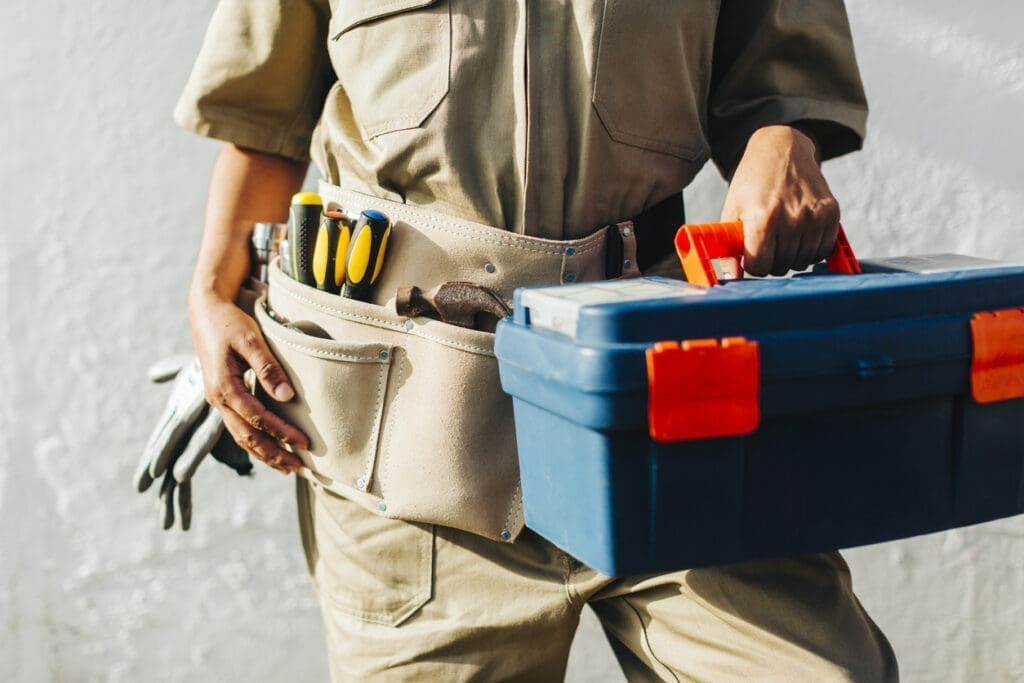
Plumbing is crucial in maintaining a functional and safe water supply system. While there are many DIY projects you can do, there are a lot of times that plumbing work requires a permit. The permits are required to ensure that the project adheres to building codes and regulations. To avoid ever having to wonder what plumbing work requires a permit, keep reading.
Why Are Plumbing Permits Sometimes Required?
Plumbing permits are required to ensure the work is done safely and effectively. While minor projects won’t require permits, if you plan to alter an existing plumbing system, you must obtain the proper permits. The permits ensure that the plumbers follow the national standard plumbing and building safety codes.
However, there is one instance when you don’t need a permit despite the project impacting the system. This situation is when you have to make emergency repairs to leaking or frozen pipes that are less than five feet long. Beyond that, permits are required. While they can be a hassle and are an extra step, they will prevent damage in the future, more costly mistakes, and prevent you from violating the law. If you ever have questions about whether a permit is required, don’t hesitate to contact us.
One important thing to note when it comes to permits is that beyond the permit cost, you will also have to pay permit acquisition fees, so be sure to add that to your budgeting.
Types of Projects that Require Plumbing Permits
While not all projects require permits, many require permits. Any jobs that result in installations or impact the water heaters, piping, fixtures, emergency repairs, drain lines, and sewer lines require a permit. Different cities have different requirements. To learn more about the specific projects requiring permits, see below.
Installation and Modification
If your project requires installing a new water supply line, drainage system, or sewer lines, you will need a permit. In addition, any changes to plumbing infrastructure, whether a new installation or just a renovation, requires a permit and a professional to complete the work to ensure safety and quality standards are met.
Water Heater Installation and Replacement
Since water heater installation and replacement involve plumbing, electrical, and potentially gas connections, it is a type of job that requires a permit. However, a licensed plumber like the ones at Goodbee Plumbing will typically handle this work to ensure any connections are correctly made, the safety of those working on the project, and avoid issues stemming from improper setup.
Bathroom and Kitchen Renovations
While renovating your bathroom or kitchen on the surface does not require a permit. A permit is required if you are working on a renovation that requires excavation and connection to the municipal sewer system. A permit is required when working on anything related to the municipal sewer system due to the potential risk to public health and the environment if not performed to standards. The professional plumber will understand how to follow established guidelines, and prevent any water contamination or damage to infrastructure.
Sewer Line Repair or Replacement
These projects also often require excavation and connection to the municipal sewer system, which is why a licensed plumber must complete the work after obtaining a permit.
Adding or Relocating Plumbing Fixtures
When adding new fixtures, such as sinks, toilets, or showers, and relocating existing fixtures, permits are typically necessary. This is because these fixtures can impact the overall plumbing system, including water supply, venting, and draining. Improper installation can result in leaks, inadequate water flow, or a sewer gas backup, so obtaining a permit and working with a licensed plumber is crucial to preventing more significant issues in the future.
Backflow Prevention Device Installation
Backflow prevention devices prevent the contamination of the potable water supply. However, the installation or replacement requires a permit since it has intricate plumbing connections and has specific standards. If you aren’t sure if you even need a backflow prevention device, read our blog and let us know if you have any questions!
How to Obtain Plumbing Permits
To obtain a plumbing permit, contact your local Sewage and Water Board. They will be able to give you an application, inform you of any additional requirements you will need to meet, and give you the approval to move forward with your project. Also, if you have any questions about your project, call them since every city has different requirements. For example, if you live in a historic district, you might need extra permits or contact other Government divisions for your approval. It does take about 1-3 weeks to obtain your permit, so be sure to factor that into your overall project timeline!
Is a Contractor Needed?
Typically, if you are planning a project that requires a permit, you will also need a contractor or other professional to adhere to state laws. On the other hand, if you are just changing the toilet or putting in new sink fixtures, you can do that on your own. But you will need a licensed professional when you are impacting the plumbing infrastructure.
Are There Any Other Requirements?
Depending on the project, you might also need to submit plans that must be approved before you are given your permit. Again, this varies depending on the project and where you live, so check your city’s requirements to ensure you have everything you need to obtain your permit.
Let Goodbee Help With Your Next Permit Approved Plumbing Job
Understanding what plumbing work requires a permit is critical for homeowners and contractors to ensure compliance with building codes, laws, and regulations. When you obtain the necessary permits, you can rest assured that your plumbing work will be done with care and quality, as well as promote safety and functionality and meet all the standard requirements. If you need any plumbing work that requires a professional, be sure to contact Goodbee Plumbing. Our team of experts is ready to help you without draining your wallet. Contact us today!
